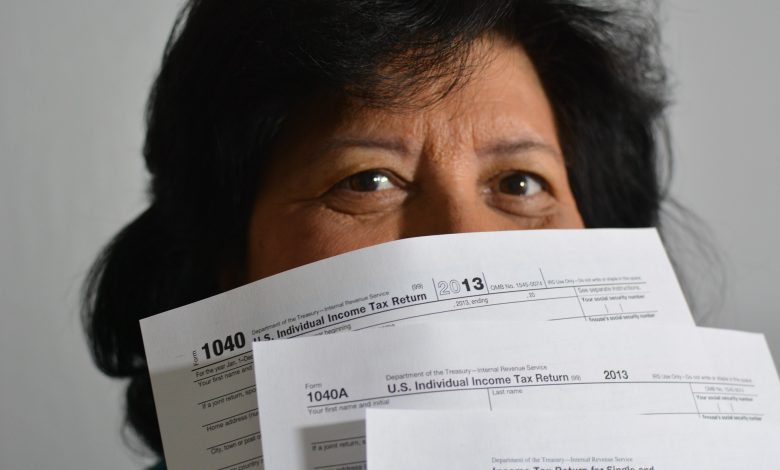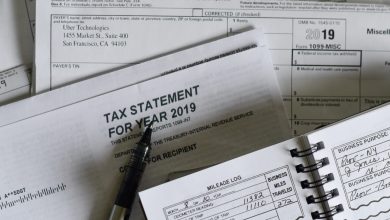Taxes in the US: a History and an Overview

We have to pay them every single year, and a large part of our income goes to them. But why exactly do we pay taxes? What role do they serve in our society, and how are they determined? Taxes have been part of many different societies throughout history, and they still are a fundamental part of world governance today. The US has a complex system of taxation, due in some part to the federal system, which means that different states also tax their residents on different things. This article goes over the history of taxation, as well as the purpose they serve for us today.
A Brief History of Taxation
Taxes have changed much throughout history. They have been implemented since ancient times, but their role in those societies was different than it is today in many ways. Today, taxes are a key part of how political systems and governments are able to function, as many nations are quite reliant from taxpayer money to prop up their systems of governance and infrastructure. This is especially true in countries whose political cultures place more of an emphasis on providing a robust system of welfare for their citizens, like the Nordic countries. In Sweden, for example, the average individual pays around 57% of their income in tax.
Compare this to ancient Greece and Rome. There were taxes on consumption, but generally speaking, the most important form of taxation in those times were tariffs. Tariffs are taxes on goods that are imported, which makes sense, as these ancient societies traded very heavily with other parts of the world. The types of taxation did vary somewhat though, depending on the circumstances. For example, there were often temporary taxes implemented on property in the Roman Empire during times of war in order to raise the necessary funds to maintain the war effort.
There were also other forms of taxation in ancient Rome, such as inheritance tax and sales tax. The sales tax was introduced during the reign of Julius Caesar. During this time, people were contracted to collect the taxes and bring them to the relevant institution. They received their payment in a share of the tax money. Later on, civil servants were given the role of collecting taxes for the Roman Empire. These early precedents for forms of taxation are still influential in some sense today.
In the Middle Ages, the first examples of income tax were implemented in some parts of Germany and Italy. In these areas, wealthy citizens were expected to assess their income and subsequently pay some form of income tax if it was considered to be justified in their case. Direct taxation was also implemented, which meant that non-wealthy members of society were all taxed at a flat rate. Such taxes are largely the basis of the systems of taxation that much of the modern world uses today.
In American history, taxes are a more recent phenomenon than in other parts of the Western world. The first example of taxation in the US is arguably that of the estate tax. This was not consistently enforced, but it has changed depending on the need for public support for government efforts. For example, if there was a war on, then the government would often reintroduce the estate tax in order to raise the necessary funds to support their campaign. Income taxes, which are largely the basis for the taxation system, were first seen in the early 1900s, with the adoption of the corporate income tax in 1909. A few years later, the federal income tax on individuals was introduced, in 1913.
In the 1920s, a host of other types of taxes were also adopted at a state level. Sales taxes were slowly introduced and taken up by different states throughout the decade.
Now, there are many different forms of taxes that are implemented both at a state and federal level throughout the USA. It is important to note that taxation varies widely from state to state in the USA, due to the federal system of government. For example, a resident of California may be subject to an income tax rate of 13%, whereas a resident of Washington does not need to pay direct income tax at all. However, they may pay much higher taxes on their property, or a resident of Florida pays a higher rate of taxes on gasoline.
Taxes have also varied throughout history, and they tend in a sense to reflect the political or cultural trends of the times. For example, goods that have been historically considered sinful in some way have been heavily taxed at times, in order to dissuade people from using or purchasing them. This has especially been the case with alcohol, which led to the development of a culture in parts of southern America where people have brewed their own alcohol as a result of heavy taxes or bans on the substance.
Cigarettes are another product that have been heavily taxed as a result of this attitude, though the amount that they have been taxed at has varied heavily from state to state. Though this is still the case today, the argument now tends also to have a lot to do with the health effects of a particular substance. In this sense, taxes can be used as a way of changing the behavior of the public without outright banning something. Through taxation, a substance or product can become so prohibitively expensive that many people stop purchasing or using the product, though it is not actually illegal to do so. This is the reason that alcohol is taxed very highly by the governments in Scandinavia, as it is thought to be an effective way to combat alcoholism or excessive drinking.

What are Taxes and How do Taxes in the US Work?
Very broadly speaking, taxes are money that are given to a public body or institution. The idea is that the money is collected in order to pay for the services that that institution provides. The institution is generally some type of government, and the collection is mandatory. This means that someone who lives within the area of governance does not get to choose whether or not they pay taxes, and it is enforced that they pay taxes. As such, if they fail to pay their taxes on time or do so incorrectly, there are usually legal or criminal consequences.
In the US, the system of tax is ‘progressive.’ This means that people are charged different amounts, depending on their earnings and assets. Someone who makes a relatively small amount of money may pay no tax at all, and someone who is a high earner may end up paying almost half of their income. The concept behind this is that everybody pays what they are able to and that people who have more to give are therefore able to contribute more financially to the society that they live in than people who earn less.
Your income, which is the money that is taxed by the government, is the money that you earn throughout the year. In many cases, this money is automatically taxed by your employer, who takes out the amount that is eligible to be taxed on from your paycheck. This means you do not have to take the money out yourself and then figure out what percentage of your pay is eligible to be taxed, which can be complicated. However, it also prevents people from evading their tax responsibilities and paying less tax than they actually owe, for example. It is also important to note that it is not just money you earn from your employment that is considered income. If you win some money in the lottery, the government also considers that a form of income, and you can therefore be taxed on it too.
One potential exception to this is money that you earn from trading stocks. If you are able to make a profit doing so, the government does not actually consider this to be income. It is instead classed as a capital gain, and you do not have to pay taxes on it. There are therefore many people in the US who are able to become very wealthy through trading stocks, as some of them are able to predict trends in the market well and independently generate a lot of money selling stocks that suddenly become very valuable.

Who Has to Pay Taxes?
All citizens of voting age in the US who earn a certain amount of income generally have to pay taxes. However, it is not just individuals who must pay taxes in the US. Companies must also pay taxes, but the way the amount they must pay is calculated differs from that of individuals in the US. Companies are not actually taxed on their income, but they are taxed on their profits. There are also exceptions made on what are referred to as business expenses, which do not need to be taxed. Basically, companies can claim that a certain amount of their income is not actually a profit because the money was used on business expenses, and this means that the amount they can legally be taxed on is less than if they had not used that money as a business expense.
This is somewhat controversial, as there are many, many different ways that companies can write off part of their income on business expenses. Individuals are, of course, not allowed to do so with their personal income, so many feel that it is not entirely just that companies get to do so because some believe that many major companies pay a fraction of what they should in taxes, largely due to their claiming business expenses. The taxation system in the US is somewhat unique because of how little large corporations pay in comparison to what they would have to pay in many other countries in the world. This makes the US a very alluring place to start a business for many, especially given how strong the economy is too. However, it also means that more of the tax burden falls on the individual than it potentially could if companies and corporations were taxed slightly differently.



